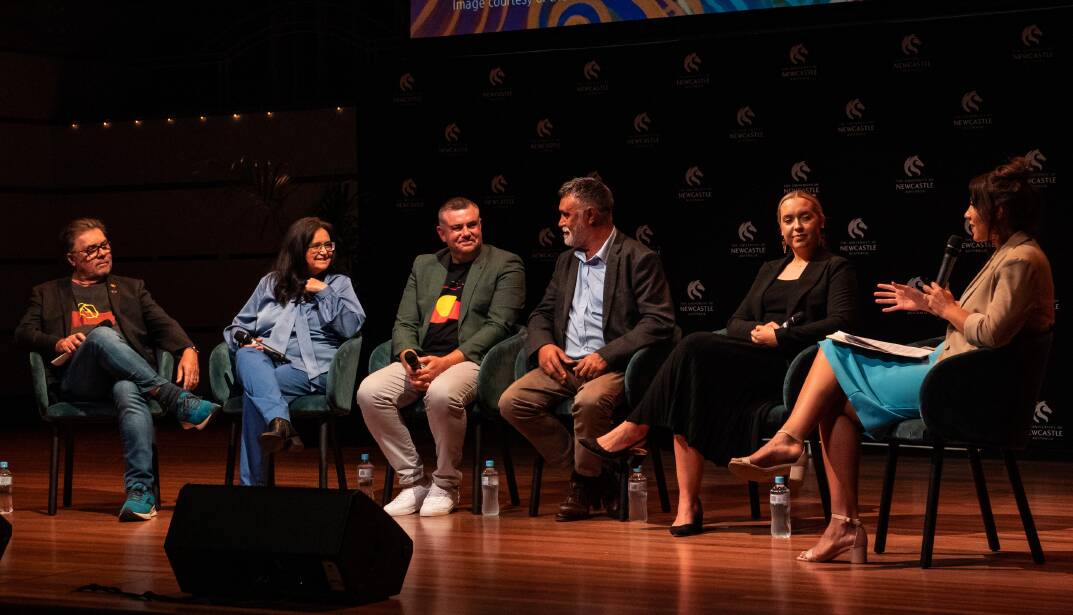
First Nations people have rallied for an Indigenous Voice to Parliament for more than a century, a University of Newcastle (UON) panel have said.
The panel, who spoke in an open session on Tuesday night, said Indigenous activist groups including the Australian Aboriginal Progressive Association (AAPA) had fought for "meaningful" parliamentary representation since at least the 1920s.
Speakers included UON leadership team members Nathan Towney, Dr Ray Kelly, Kathleen Butler and Kishaya Delaney, and Professor John Maynard.
Keynote speaker Professor Maynard said historic leaders, including his grandfather, had "fought with both voice and pen to make change in Aboriginal affairs".
The call to continue ancestral actions came as a Labor-dominated Federal parliamentary committee recommended that Parliament pass a constitution alteration bill, which would trigger a referendum this year. If passed, the referendum would enshrine an Indigenous Voice to Parliament in the constitution.
Professor Maynard said the referendum may answer a call for "a board of management comprised of capable, educated Aboriginals".
For other panellists, this year's referendum comes after years of fighting for what they say is a fundamental right.
"There is a sense of fatigue, of having to have so many conversations that go to the heart of your identity all the time," Ms Delaney said. "Overall, I'm very positive and excited."
"People are sick and tired of having laws made about then that impact their communities, and then having to campaign," she said.
"They are sick of having to do it afterwards and put in time, energy and resources that many communities don't have. There's another way to go about it."
A referendum question has been confirmed and would include the power for First Nations people to make laws with respect to matters relating to the Aboriginal and Torres Strait Islander affairs.
Dr Kelly, who is deputy head of the Wollotuka Institute, approached this question with cautious optimism.
"If this referendum gets up, the one thing [I would want] would be an open and fair election where everybody gets to throw their hat in the ring, where everybody gets measured by their own community support.
More importantly, we have to hold people to account. We have to have certain standards for our [own people]."
To see more stories and read today's paper download the Newcastle Herald news app here.







